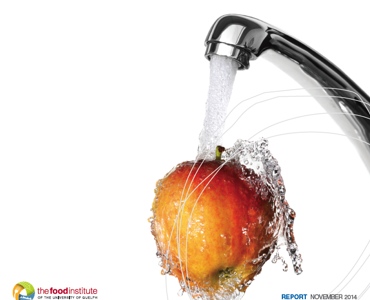
Canada’s food safety performance scores high
Food in Canada
Facilities Maintenance Food Safety Processing Bake & Snack Food Beverages Confectionery Dairy Fruit & Vegetables Meat &Poultry Pet Food Seafood Specialty Foods Conference Board of Canada transparencyA new report from the Conference Board of Canada and the University of Guelph’s Food Institute gives Canada’s food safety performance top marks

Ottawa – Canada’s food safety performance has earned a top spot in a new ranking.
The 2014 World Ranking Food Safety Performance report says Canada’s food  safety performance ranks first, followed by Ireland and France.
safety performance ranks first, followed by Ireland and France.
The report was produced by The Conference Board of Canada’s Centre for Food in Canada in collaboration with the University of Guelph’s Food Institute.
“Canada’s excellent grades in most food safety performance metrics were due to its consistently low number of food-borne illness cases and reported recalls, Canada’s new policy on allergen labelling and a greater focus on transparency,” says Dr. Jean-Charles Le Vallée, senior Research associate and lead author of the report.
“This is good news as public trust for our food safety system is also growing.”
In fact, 67 per cent of Canadians say they believe their food to be safer than it was five years ago.
But even so, the authors of the report say there is still room for improvement. For instance, the system could use more frequent reporting and relaying of information to the public about both chemical risks in food consumption (Total Diet Studies) and nutrition and dietary studies, with additional improvements to traceability and radionuclides standards.
The report used 10 performance indicators to identify and evaluate selected common elements among global food safety systems.
It provides an overall world ranking of food safety performance for 17 Organization for Economic Co-operation and Development (OECD) countries illustrated by 10 indicators organized across three food safety risk governance domains:
• assessment;
• management; and
• communication.
“Given that our economy is more globalized than ever, understanding other food safety regimes is critical moving forward,” says report co-author Dr. Sylvain Charlebois of the University of Guelph’s Food Institute.
“Increasingly, more food regulators around the world will compel industry to become more accountable to consumers in order to better mitigate systemic risks.”
The Conference Board of Canada plans to host a live webinar on Friday, Nov. 21, to discuss the results of the report. Click here for more information.
Print this page